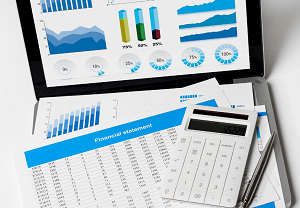IFRS Update 2020
Presenters : Milan van Wyk
Learning objectives
By the end of this event the participant should:
-
Understand the impact of COVID-19 on effective standards (IFRS 9, IFRS 15 and IFRS 16)
-
Understand IFRS 9 Financial Instruments (excluding de-recognition and hedging);
-
Understand IFRS 15 Revenue from Contracts with Customers;
-
Understand IFRS 16 Leases; and
-
Get an overview of IFRS 17 Insurance Contracts, and the Conceptual Framework.
Content
The webinar will cover the following topics:
-
IFRS 15 - Introduction: How COVID 19 impacts revenue recognition.
-
IFRS 15 - The 5 step approach to achieve clarity.
-
Step 1 – Identify the contract with the customer:
-
Importance of the contract.
-
Criteria for a valid contract for revenue recognition.
-
Treatment of money received in advance.
-
Contract modifications.
-
-
Step 2 – Identify performance obligations in the contract:
-
The starting point – promises in the contract.
-
Distinct goods and services in the contract.
-
Illustrative examples of determining whether goods and services are distinct.
-
-
Step 3 – Determine the Transaction Price:
-
What is the transaction price?
-
Is it different from current standards?
-
How to account for variable consideration.
-
How to identify a financing component in the transaction price.
-
-
Step 4 – Allocation of the transaction price to the performance obligations:
-
Understanding the basis of the allocation.
-
-
Step 5 – When & how should revenue be recognised?
-
Understanding the notion of control.
-
Testing whether goods and services should be recognized over a period of time.
-
How to measure progress over a period of time.
-
Indicators of control being transferred at a point in time.
-
-
-
IFRS 15: Disclosure of Revenue.
-
The importance of relevance and materiality.
-
Presentation.
-
Disclosure:
-
Disaggregation of the contracts.
-
Significant judgements.
-
-
-
IFRS 9 Financial Instruments:
-
Recognition.
-
Classification of assets and liabilities:
-
Classification criteria for amortised cost and fair value through OCI.
-
Decision tree for classification of financial assets.
-
-
Measurement:
-
Initial and measurement.
-
Transaction costs.
-
Fair value adjustments.
-
-
Expected credit losses (ECLs):
-
General approach vs simplified approach.
-
Significant increase in credit risk.
-
Measurement of ECLs.
-
-
Derivative accounting.
-
-
IFRS 16 Leases:
-
Identifying a lease.
-
Recognition of lease for lessee accounting.
-
Lease modifications.
-
Lessor accounting.
-








